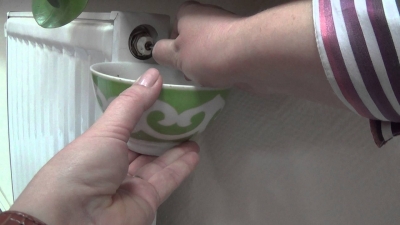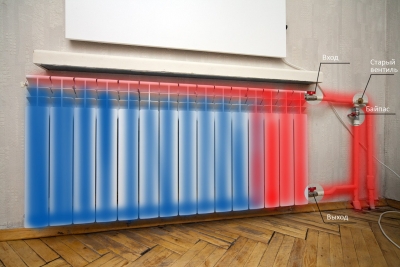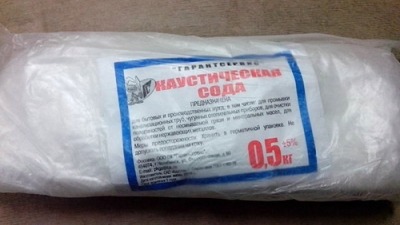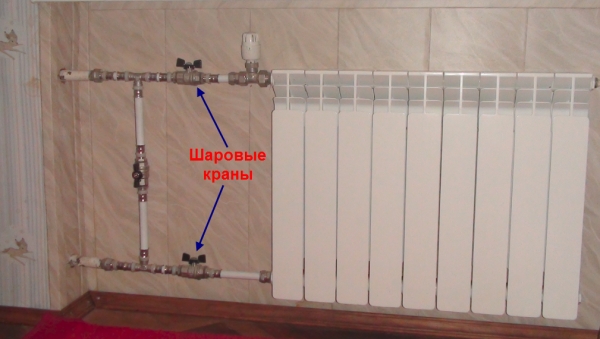Cold batteries are an alarming sign. How and with what to flush bimetallic heating radiators?

Heating systems often get clogged due to various debris getting into them, poor water quality and high mineral content in the coolant.
Limescale, corrosion and clogging of batteries significantly reduce the efficiency of the system.
When is it necessary to flush bimetallic radiators?

- Uneven heatingA hot top and cold bottom of the appliance indicate a blockage inside the equipment.
- Slow heating. When starting the heating system, the batteries take longer to heat up than usual.
- Low temperature radiators when the pipes are hot.
- Increased energy consumption.
How to clean the device correctly
Smooth inner surface doesn't get dirty as quickly, as in similar products made of cast iron or aluminum. Metal appliances for heating rooms are distinguished by their durability and require a general cleaning once every 5-7 years. Preventive cleaning should be carried out annually.
Choice of funds
Specialty chemicals are a fast and effective way to clean heating equipment from contamination. The components that are part of the preparations break down deposits on the inner surface and help wash out dirt.

In addition, you can use the following folk remedies:
- solution caustic soda;
- seventy percent vinegar essence;
- whey.
Experts advise using only special chemicals to clean metal heating devices.
Flushing batteries
It is most convenient to wash batteries in large containersConsidering the low weight of the products, the best option would be to process the equipment in a bath. First cleaning is carried out without the use of chemicalsThe radiator is filled with water and the dirt is mechanically removed from it by shaking.

Photo 1. Before performing any procedures, you should shut off the water supply to the radiator using the ball valves.
Spent Contents the device should be pour out, and in its place pour in special reagentsThe solution is inside the battery. about an hour, after which the equipment tap with a wooden hammer or shake to remove any remaining rust and dirt. At the end of the device rinse in running water.
Peculiarities of cleaning at home
In addition to washing metal equipment, the heating system of the house should be completely cleaned. To do this, you need release all the air and fill the circuits with chemicals. Water with reagents must be run through pipes until a visually clean liquid flows out.
Important! The main reason for battery clogging is the use of unfiltered water from a well or borehole.
In private homes, due to unpurified coolant, the heating systems should be flushed Conduct 1-3 times a year.
Useful video
Check out the video that shows how to flush a radiator: how to reduce pressure, release dirty water.
Clean radiators are the key to efficient home heating
Wash the batteries preferably after the end of the heating season. This will prevent emergency situations, breakdown of the heating system and premature failure of devices. Manipulations related to cleaning radiators, do not take much time, effort and money, but provide energy savings and a comfortable atmosphere in the room.






Comments
The next flush after three years showed that everything was absolutely clean. I think that the need for constant cleaning of the system is greatly exaggerated and this is done by service departments, convincing consumers that they need to constantly contact them and pay money for service.